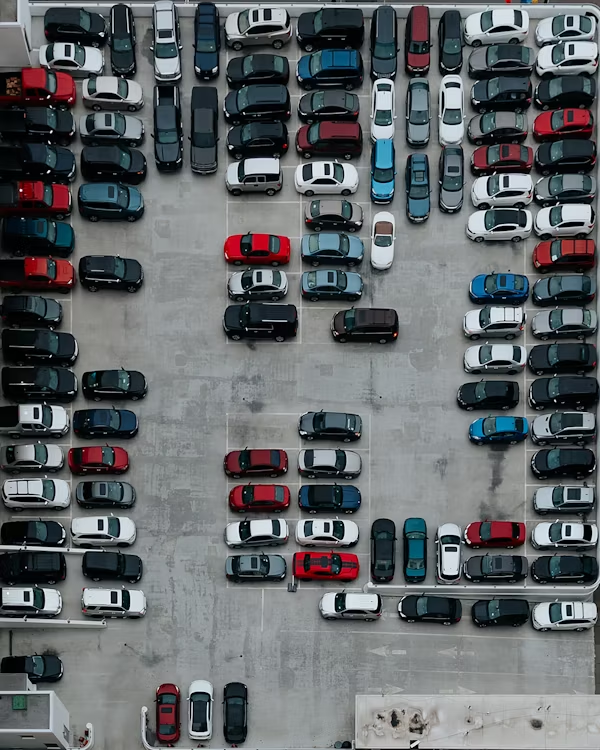With 152 smart sensors and dynamic pricing, Lyon's business district has eliminated 14,000 hours of annual parking searches. A dive into a project that's inspiring Milan and Frankfurt.

The Hunt for Places, a Nightmare Avoided
In 2022, Lyon drivers spent an average of 12 minutes looking for a parking space in the Part-Dieu district – a national record (1). A daily hell responsible for:
32% of local fine particle pollution
45,000 hours lost/year in economic productivity
58% conflicts between motorists and delivery drivers
The solution? The deployment in March 2023 of 152 IoT sensors under parking spaces, coupled with a real-time app. Results in 1 year:
Average search time: ↓ 37% (down to 7.6 min)
Rotation of places: ↑ 22%
CO2 emissions: ↓ 18% in the district (2)
“The sensors use a predictive algorithm based on traffic history,” explains Lucie Martel, project manager at Lyon Smart City. A system that cost €1.2 million – amortized in 14 months through additional revenue.
Delivery Drivers, the Big Winners of the System
With 2,300 deliveries/day in the area, professionals welcome the innovation:
Average downtime: reduced from 9 to 4 minutes
Fines for illegal parking: ↓ 72%
Average logistics cost: ↓ 15% according to the Rhône-Alpes Transporters Union
“The app shows us the spaces reserved for utility vehicles in real time.”, says Karim Bensalah, a delivery driver at Chronopost. A crucial gain, as 38% of Lyon delivery drivers admitted to “sometimes giving up on a delivery” for fear of fines (3).
However, the system is causing discontent. Private parking lots have seen their use drop by 19%, accusing the city of "unfair competition." A debate that led to the introduction of a €0.30/delivery fee in January 2024.
Towards a European Generalization?
Brussels has classified the Lyon project as a “best European practice” in its Urban Mobility 2024 report. Three key innovations make it replicable:
Interoperability: The app works with Waze and Google Maps
Scalability: Addition of 84 sensors in 2024 to cover 100% of the district
Accessibility: Preferential rate for electric vehicles (-25%)
"The challenge now is to export this model.", confides Marco Bertolini, head of mission to the EU. Milan and Frankfurt have already commissioned a feasibility study, with a target of -30% of parking-related traffic by 2027.
Sources:
INRIX Global Parking Pain Study (2022)
Press release from the Lyon Metropolis – April 2024
National Road Transport Federation Survey

